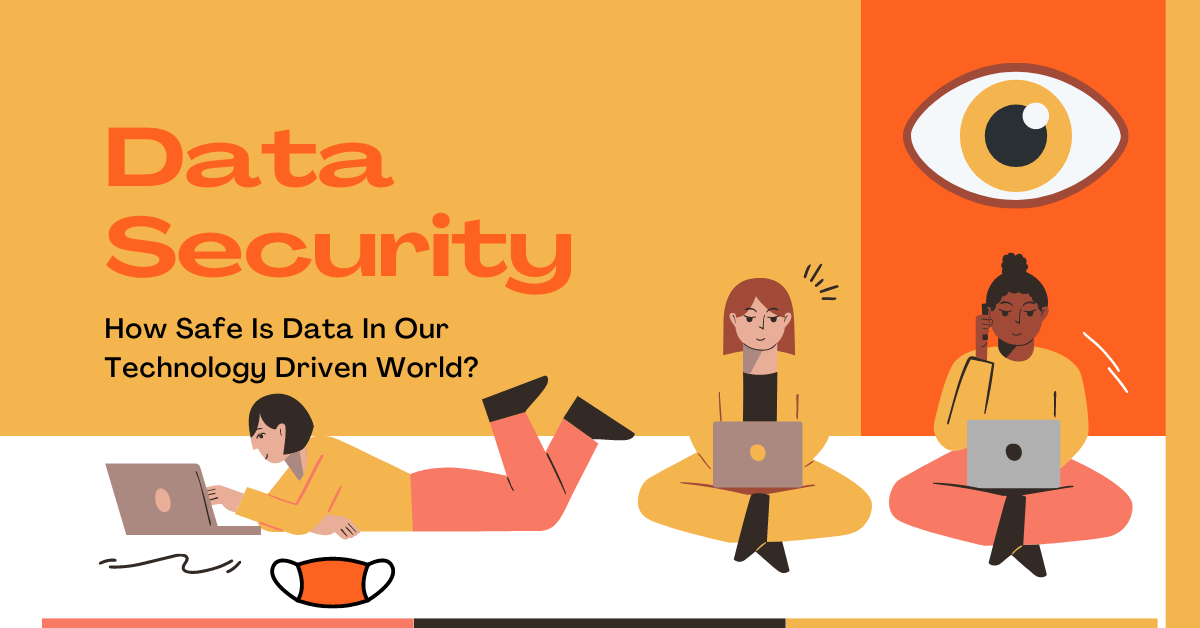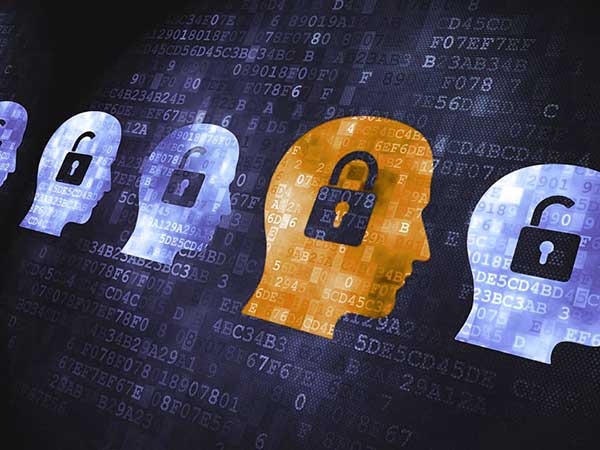Nowadays, data security is vital for every internet user. And while you may not be in danger of getting mugged or stabbed, criminals on the internet are after something much more valuable: data.
And every digital interaction, whether with a device, application, or feature, generates data. Is yours safe enough in a world that looks like ours? Read on to find out more.
Almost everyone is an internet user these days. The United States of America has some of the highest internet penetration stats in the world. Residential services like Cox internet plans cover most households located in key markets.
When not using their home Wi-Fi, people still use mobile internet services instead of staying offline till they can connect to a wireless network again.
Most businesses, educational institutes, medical service providers, and even not-for-profit organizations rely heavily on the internet as well. Many aspects of our lives are now driven by digital technology.
However, given how much internet use and various devices have cemented themselves in our lives, it is easy to become complacent. The internet isn’t always a safe place.
Table of Contents
Data Security In A World Driven By Technology
Early internet access was restricted to government and military use. In fact, the first internet network was developed as a fail-safe to ensure government operations in case a nuclear attack disrupted conventional communication.
That’s right! Cold War paranoia led to the development of one of the most significant technologies in human history. But in the early 90s, the internet became commercially available.
Over the decades, it penetrated not just homes and offices in the United States but also all over the world. Today, smartphones, computers, and even IoT devices rely on internet networks to work.
However, around the same time the internet became a commercially available service, a new breed of criminals began to emerge. Cybercriminals are undesirable elements, but they exist nonetheless. In many cases, they use sophisticated ways to infiltrate websites, devices, and even home networks.
Once in, they will usually target your data and personal information. They can steal it, use it fraudulently, impersonate you, or even hold sensitive information for ransom.
In any case, you can be sure cybercriminals aren’t trying to hack you to access your calendar and figure out the best time to throw you a party.
The cybersecurity industry is growing both in size and sophistication. But data is rarely safe if you, the first line of defense, don’t take the following precautions:
Use Strong Antivirus And Firewall Software
Using an updated antivirus tool is not optional if you’re an internet user, it is mandatory. An antivirus scans your device and network for commonly known types of malware.
It can detect and deal with these viruses after a scan, as well as in real-time when the virus tries to make it into your device.
An updated antivirus tool can find the most recent threats since hackers continue to get smarter and more sophisticated.
But where the antivirus software focuses on finding and removing malware that has entered your system or device, a firewall exists to make sure the malware does not get past it in the first place.
A strong firewall will ensure your network and device are protected from commonly known malware types.
Set Strong And Unique Alphanumeric Passwords
It is astonishing how something as simple as using upper- and lower-case characters as well as symbols can boost your data security. Hackers tend to use a technique called brute force when hacking into accounts.
Brute force involves bombarding the account log-in page with all possible permutations a simple password could have. This takes a lot of time, but if you have a weak password with just lower-case alphabets, you’re making it way too easy.
Create unique passwords for each account, and beef them up by using a mix of alphabets, numerals, and symbols. This makes it much harder for hackers to gain access via brute force since the number of permutations becomes much harder to process.
READ ALSO: How To Generate Strong Passwords With SecureBlitz Password Generator
Healthy Skepticism At All Times
Finally, the best thing you can do for data security is to protect your data by developing a healthy sense of online skepticism.
Be suspicious of links or websites that you don’t know. Don’t open emails or click on attachments that come from senders that you don’t know or who may be impersonating someone you do know.
Never share your date of birth, phone number, or address publicly on social media. Even when sharing this information with someone you know, make sure it’s the same person on the other end.
Above all, invest in and start using a solid VPN service. The encryption tunnels make it much harder for someone to eavesdrop on you or monitor your activity.
How Safe Is Data In Our Technology Driven World?
Data security in our technology-driven world is a complex issue with both advantages and challenges.
Here's a breakdown of some key points to consider:
The Advantages of Data Collection
- Convenience and Personalization: Data collection allows companies to personalize your experience, from targeted advertising to recommending products you might be interested in. It can also streamline processes, like auto-filling forms with your saved information.
- Improved Services: Data analysis can help companies improve their services and develop new features that better meet user needs. For instance, analyzing traffic patterns on navigation apps can help optimize routes.
- Scientific Advancement and Innovation: Data is the fuel for many scientific advancements and innovations in healthcare, finance, and other sectors. Studying vast datasets can lead to breakthroughs in disease research, targeted treatments, and financial modeling.
The Challenges of Data Security
- Privacy Concerns: The widespread collection of personal data raises privacy concerns. Users might be apprehensive about how companies use their information and who they share it with. Data breaches can expose sensitive information and lead to identity theft or financial loss.
- Cybersecurity Threats: As our reliance on data grows, so do cyber threats. Hackers constantly develop new methods to steal or exploit data for malicious purposes. Data breaches can be costly for both companies and individuals.
- Government Surveillance: Data collection by governments can raise concerns about mass surveillance and potential misuse of information.
How to Stay Safe in a Data-Driven World
- Be Mindful of What Data You Share: Be cautious about the information you share online, particularly on social media. Avoid sharing overly personal details or sensitive information.
- Strong Passwords and Multi-Factor Authentication: Use strong, unique passwords for all your online accounts and enable Multi-Factor Authentication (MFA) whenever possible. MFA adds an extra layer of security by requiring a second verification step beyond just your password.
- Read Privacy Policies: Before using a new app or service, take the time to read their privacy policy. Understand how your data will be collected, used, and stored.
- Be Wary of Phishing Attempts: Phishing emails and websites try to trick you into revealing sensitive information like passwords or credit card details. Be cautious of emails or messages urging you to click on suspicious links or download attachments. Don't enter your personal information on unfamiliar websites.
- Use Security Software: Consider using antivirus and anti-malware software to protect your devices from malware that can steal your data. Keep your software updated with the latest security patches.
The Future of Data Security
Data security is an ongoing battle that requires continuous improvement. As technology evolves, so too must our data security measures. Here are some potential future trends:
- Stronger Encryption: Advancements in encryption technology can make it even harder for unauthorized users to access data.
- Biometric Authentication: Biometric authentication (fingerprint, facial recognition) could offer a more secure way to verify user identity.
- Increased Regulation: Governments might enact stricter regulations on data collection and use to protect user privacy.
- User Awareness: Educating users about data security practices will be crucial in safeguarding their information.
By understanding the challenges and taking steps to protect your data, you can navigate the data-driven world with more confidence. Remember, data security is a shared responsibility. We all have a role to play in ensuring our information remains secure.
SUGGESTED READINGS
- 15 Tips to Protect Your Privacy Online
- Network Firewalls: Comprehensive Guide For Non-Tech-Savvy People
- The Most Secure Online Password Generators You Should Consider
- 7 Tips To Create A Strong HackProof Password
- How To Detect Email Phishing Attempts (Like A Geek!)
- 8 Confidential Tips for Selecting a Password Manager
- 7 Best Password Managers for 2021
About the Author:
Marie Beaujolie is a computer network engineer and content writer from Paris. She is passionate about technology and exploring new ways to make people’s lives easier. Marie has been working in the IT industry for many years and has a wealth of knowledge about computer security and best practices. She is a regular contributor for SecureBlitz.com, where she writes about the latest trends and news in the cyber security industry. Marie is committed to helping people stay safe online and encouraging them to take the necessary steps to protect their data.
Meet Angela Daniel, an esteemed cybersecurity expert and the Associate Editor at SecureBlitz. With a profound understanding of the digital security landscape, Angela is dedicated to sharing her wealth of knowledge with readers. Her insightful articles delve into the intricacies of cybersecurity, offering a beacon of understanding in the ever-evolving realm of online safety.
Angela's expertise is grounded in a passion for staying at the forefront of emerging threats and protective measures. Her commitment to empowering individuals and organizations with the tools and insights to safeguard their digital presence is unwavering.







